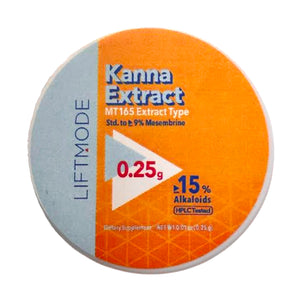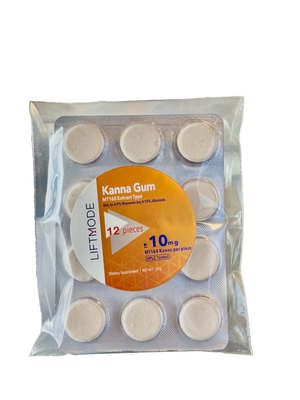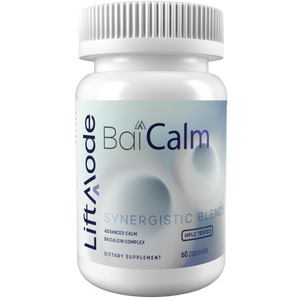Rhodiola rosea benefits are a popular search term these days, no doubt as a result of the increased interest in this great natural health supplement. Although
Rhodiola has been used for over a hundred years, and possibly much longer, in traditional Chinese medicine and Eastern healing, it has only recently sparked the interest of Western science.
In this article, we explore the top 3
Rhodiola rosea benefits and look into what the fuss is about this beneficial herbal extract. We look into its benefits for supporting a healthy circulatory system, its ability to help your body maintain a healthy metabolism and to fight off inflammation and even infection.
![]()
What is Rhodiola?
Rhodiola rosea has a scientific name and is sometimes difficult to spell correctly. A few misspelt versions of this question include ‘what is Rodiola?’ and ‘what is Rodeola?’. No matter the spelling you used, we’ll help you to understand what the key Rhodolia benefits are and how the ‘Golden Root’ can help you to increase energy and reduce fatigue.
Rhodiola rosea is a species of herb in the
rhodiola genera (of the
Crassulaceae family).
[1] Rhodiola is found exclusively in the Arctic regions of Asia, Russia, and Scandinavia. Historically,
Rhodiola has a long history of use as an anti-fatigue tonic. It is thought to have been used by traditional cultures living in tough, wild, and freezing conditions in the far North. The key uses that they employed this Arctic root for where to a. reduce fatigue and b. reduce stress (both physical and mental).
[2]
What Are the Top Rhodiola Rosea Benefits?
Rhodiola Rosea, sometimes also known as the Golden Root, is a powerful herb with great energy-enhancing, stress-reducing, and fatigue-destroying effects. The benefits of Rhodiola have been known for hundreds of years, if not more, especially in traditional societies living in cold climates. In Traditional Chinese Medicine (TCM),
Rhodiola Rosea (sometimes called Rose root or Rosenroot) is incorporated into the tonic called
Hong Jing Tian, which is taken to increase vitality and longevity.
[3]
Rhodiola Rosea is considered an ‘adaptogenic’ substance, meaning that it helps the human body
adapt to changes in the environment. Benefits of adaptogens include, for example, increased resistance to cold, increased resistance to stress, and decreased sensitivity to heat.
[4] In terms of the adaptogenic effects that are unique to
Rhodiola Rosea, these include the following:
1. Helps to Reduce Feelings of Stress and Fatigue
[caption id=""attachment_1639"" align=""alignright"" width=""300""]
![]()
Studies show that Rhodiola helps to reduce stress[/caption]
An increasing number of studies point to the significant benefits of
Rhodiola rosea supplements in reducing feelings of tiredness and fatigue (especially fatigue related to physical exercise). Although these benefits have been known for a long time through anecdotal evidence, it is not until quite recently that Western science began making findings on the Golden Root’s benefits. A recent systematic review of published studies found that there was significant evidence pointing to
Rhodiola Rosea’s ability to reduce feelings of physical and work-related fatigue.
[5]
There have been a number of studies in humans which suggest that
Rhodiola Rosea extract supplements have powerful effects on feelings of stress. As one example, a study in 2012 examined
Rhodiola Rosea’s effects on stress in over 1300 subjects suffering from chronic stress. The results of the study showed statistically significant improvements in stress-ratings, overall, as well as improvements in cognition and overall well-being.
[6]
2. Improvements in Mental and Physical Performance
Apart from reducing feelings of stress and promoting well-being,
Rhodiola rosea extract benefits also include the ability to support healthy cognitive performance and to fight off fatigue and physical as well as mental exhaustion.
5 A number of preliminary animal studies have indicated that
Rhodiola Rosea extract can help to reverse the negative effects of scolopamine (which is used to study the potential of cognitive-enhancers), by restoring memory and cognitive function in animals treated with scolopamine.
[caption id=""attachment_2588"" align=""alignright"" width=""300""]
![]()
Studies have shown that Rhodiola helps reduce fatigue and boosts energy![/caption]
Two more of the top
Rhodiola rosea benefits are a.) its ability to offer potent cognitive-enhancing effects and b.) to ward off both fatigue and physical/mental exhaustion. Numerous animal studies have shown that Rhodiola rosea extract supplements can reverse the negative effects of scolopamine and restore memory and cognitive function in animals treated with it.
[7]
Studies in humans have yielded similar promising results. For example, a 2007 study examined the safety and efficacy of chronic use of
Rhodiola rosea extract, over 12 weeks. The results pointed to a statistically significant improvement in physical and cognitive complaints in the entire group, with no recorded adverse effects.
Before the study, physical complaints included: exhaustion, decreased motivation, daytime sleepiness, decreased libido, and sleep disturbances, while cognitive complaints included concentration deficiencies, forgetfulness, decreased memory, susceptibility to stress, and irritability.
[8]
3. Rhodiola Rosea Extract for Health and Wellbeing
There is some new evidence that
Rhodiola Rosea may be highly serotonergic (increases serotonin levels in the brain). Serotonin is a neurotransmitter of vital importance to the management of emotions and physical performance. Increased serotonin levels have long been associated with improvements in mood and feelings of wellbeing.
[9]
[caption id=""attachment_2313"" align=""alignright"" width=""300""]
![]()
Rhodiola is most effective when taken in addition to a healthy diet and lifestyle.[/caption]
Studies have also indicated that a chemical component of
Rhodiola Rosea (called Sildroside) functions as a powerful antioxidant in the human body.
[10] Antioxidants help to support a healthy body through their ‘free-radical scavenging’ effects. This means that antioxidants, including
Rhodiola Rosea supplements, help to destroy dangerous reactive chemical species in your body called ‘free-radicals’.
Free radicals are produced naturally by the biochemical processes in your body, as well as unnaturally by alcohol, pollution, toxins, unhealthy foods, and tobacco smoke.
[11]
Rhodiola Dosage: What is the Correct Serving Size for Rhodiola Rosea Supplements?
While most
Rhodoila Rosea supplements contain an herbal extract of around 3%, reviews of 1% Salidroside still point to great effects, even at this low concentration. The minimum effective
Rhodiola dosage used in studies appears to be around 50 mg. This low serving size appears to be more effective when used over long periods of time. For single doses, the recommended Rhodiola dosage is closer to around 300 – 680 mg per day. Anything above this dosage may be less effective.
1
Do not exceed the recommended serving size. Do not use Rhodiola Rosea extract supplements if you are taking any medication. If you have any medical condition, are pregnant, or are breastfeeding, please talk to your doctor before using Rhodiola Rosea supplements.
Medical Disclaimer
Not intended to treat, diagnose, or cure any disease or ailment. Please read and fully understand potential adverse effects before using this product. These statements have not been reviewed by the FDA and are not written by a medical professional. Please consult your doctor before using any supplements, especially if you have any medical conditions. Tristan
B.Sc. in Molecular Biology and Biochemistry Researched & written by
Tristan and verified by the Liftmode.com Research Team
References:
[1] Rhodiola rosea, Examine.com, available online at:
https://examine.com/supplements/rhodiola-rosea/ [Accessed December 4, 2017]
[2] Khanum, F., Bawa, A. S. and Singh, B. (2005),
Rhodiola rosea: A Versatile Adaptogen. Comprehensive Reviews in Food Science and Food Safety, 4: 55–62.
[3] Jafari M, et al. Rhodiola:
a promising anti-aging Chinese herb.
Rejuvenation Res. (2007)
[4] https://www.merriam-webster.com/dictionary/adaptogen
[5] Hung, S.K., Perry, R., Ernst, E.,
The effectiveness and efficacy of Rhodiola rosea L.: a systematic review of randomized clinical trials.,
Phytomedicine. 2011 Feb 15;18(4):235-44.
[6] Edwards, D., Heufelder, A., Zimmermann, A.,
Therapeutic effects and safety of Rhodiola rosea extract WS® 1375 in subjects with life-stress symptoms--results of an open-label study.,
Phytother Res. 2012 Aug;26(8):1220-5.
[7] Getova, D.P. & Mihaylova, A.S.,
Effects of Rhodiola rosea extract on passive avoidance tests in rats., Central European Journal of Medicine (2013) 8: 176.
[8] Fintelmann, V., Gruenwald, J.,
Efficacy and tolerability of a Rhodiola rosea extract in adults with physical and cognitive deficiencies., Adv Ther. 2007 Jul-Aug;24(4):929-39.
[9] Chen, Q.G., et al.,
The effects of Rhodiola rosea extract on 5-HT level, cell proliferation and quantity of neurons at cerebral hippocampus of depressive rats.,
Phytomedicine. 2009 Sep;16(9):830-8
[10] Li, X., Sipple, J., Pang, Q., Du, W.,
Salidroside stimulates DNA repair enzyme Parp-1 activity in mouse HSC maintenance.,
Blood. 2012 May 3;119(18):4162-73. doi: 10.1182/blood-2011-10-387332. Epub 2012 Mar 16.
[11] A Phaniendra, D Babu Jestadi, L Periyasamy.
Free Radicals: Properties, Sources, Targets, and Their Implication in Various Diseases.
Indian J Clin Biochem. 2015 Jan; 30(1): 11–26.




